By Alexandra Peach
“For a diagnosis, see a neurologist, for the other 99% of your well-being, see the Dementia Society.” Bill Hayden, person living with dementiaFive years ago, as a multi-tasking senior executive at a life science informatics company, Bill started the bumpy journey of a dementia diagnosis. With symptoms of memory loss, a visit to his family doctor, and many dismissive visits and a stroke, a neurologist finally diagnosed Bill with Vascular Cognitive Impairment. Once he had a diagnosis, the next question was “What do I do with my time, now?” This is where the Dementia Society of Ottawa and Renfrew County champions the person living with a diagnosis. Bill describes the Dementia Society website, www.dementiahelp.ca, as a thorough roadmap, easy to navigate, patient and caregiver centred. He says, “Without The Dementia Society, I’d be floating in space…how would I have learned to cope with the NOW and what is coming? Where would I get resources about what’s really happening?” Bill also attended several webinars and programs offered by The Dementia Society, Saying “These programs give me understanding and that lessens the fear and anxiety. They were very personalized and made everyone feel welcome and valued; [they] always addressed the whole person, the other 99% of the person.” And that makes all the difference. Sharing his experience at the Understanding Mild Cognitive Impairment webinar, Bill says, “The speaker was fantastic. It was a clear, concise and easy-to-understand presentation. You [The Dementia Society] have ticked off many of the boxes that patients & families are looking for.” Bill describes living with dementia as living in the Twilight Zone. “Someone can suddenly just change the channel and I don’t know where I am.” But a dementia diagnosis didn’t stop Bill from beginning a new, artistic journey. After trying an art therapy program by Teepa Snow, Bill found a new way to express himself and he credits the power of the art that “allowed me to feel happy again.” He says art “allows us to think in the now and that is powerful because there is no worrying about the past or future or about getting something wrong, it’s just now. I can do that. Even though I’m here now…I know I’m disappearing.” He titled his sculpture “Melting Me” to show what he feels like at this point, while he’s lucid. Another art piece by Bill, “Two Sides of our Face,” shows how information comes in, but the wired shut mouth and question marks on the back represent what happens inside him when he tries to express himself.
-x-

Pour obtenir un diagnostic, consultez un neurologue. Mais pour assurer votre bien-être, faites appel à la Société de la démence. Bill Hayden, atteint de démenceLorsqu’il a reçu un diagnostic de démence il y a cinq ans, Bill était un cadre supérieur polyvalent au sein d’une entreprise d’informatique en sciences de la vie. C’était le début d’un véritable parcours du combattant. Constatant qu’il avait des pertes de mémoire, Bill a consulté son médecin de famille. Il lui aura fallu de nombreux rendez-vous sans réponse et un accident vasculaire cérébral avant qu’un neurologue ne diagnostique un trouble cognitif vasculaire. Après avoir reçu le diagnostic, Bill se demandait comment il occuperait son temps dorénavant. C’est là que la Société de la démence d’Ottawa et du comté de Renfrew intervient. Bill décrit le site Web de l’organisme, www.dementiahelp.ca, comme une feuille de route complète, facile à suivre et axée sur les personnes atteintes et leurs proches aidants. « Sans la Société de la démence, je serais dans un trou noir. Comment aurais-je appris à vivre au quotidien et réussi à me préparer à ce qui m’attend? Où aurais-je obtenu les ressources pour savoir ce qui se passe réellement? », se demande-t-il. Bill a participé à plusieurs webinaires et programmes offerts par la Société de la démence. « Ces programmes m’ont permis de comprendre la maladie et, du même coup, d’atténuer mes craintes et mon anxiété. Les services étaient très personnalisés. Tout le monde se sentait bien accueilli et valorisé. On me traitait comme une personne à part entière, sans voir uniquement ma maladie », explique Bill. Et cela contribue grandement à changer les choses. Bill a particulièrement apprécié le webinaire intitulé Understanding Mild Cognitive Impairment : «Le conférencier était fantastique. La présentation était claire, concise et facile à comprendre. La Société de la démence a coché bien des cases sur la liste de ce que recherchent les patients et les membres de leur famille. » Bill décrit sa démence comme une expérience dans un monde nébuleux. « Il suffit qu’une personne change brusquement le poste de télévision pour que je ne sache plus où je suis. » Mais la maladie ne l’a pas empêché de s’initier aux arts en s’inscrivant à un programme d’art-thérapie conçu par Teepa Snow. Bill a trouvé une nouvelle façon de s’exprimer et souligne le pouvoir de l’art, qui lui a permis « d’être heureux de nouveau ». Il affirme que l’art permet de vivre le moment présent : « C’est extraordinaire, parce qu’on ne se préoccupe pas du passé ni de l’avenir. On ne craint pas de faire une erreur. On vit le moment présent. Je peux faire ça. Même si je suis ici maintenant… je sais que je disparais lentement. » Bill a nommé sa sculpture Melting Me pour refléter ce qu’il ressent actuellement dans les moments de lucidité. Une autre de ses œuvres, Two Sides of our Face, montre comment il intègre l’information; la bouche attachée et les points d’interrogation à l’arrière-plan illustrent ce qu’il ressent lorsqu’il tente de s’exprimer.









